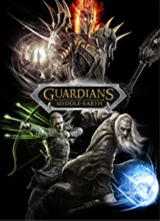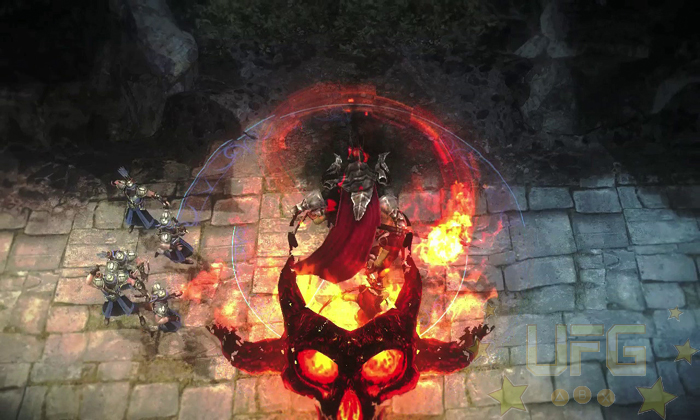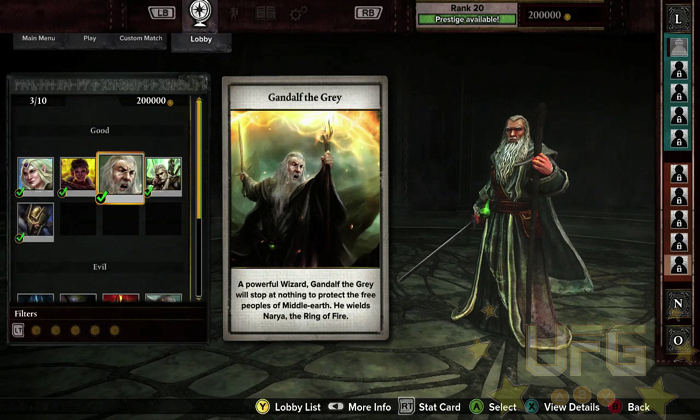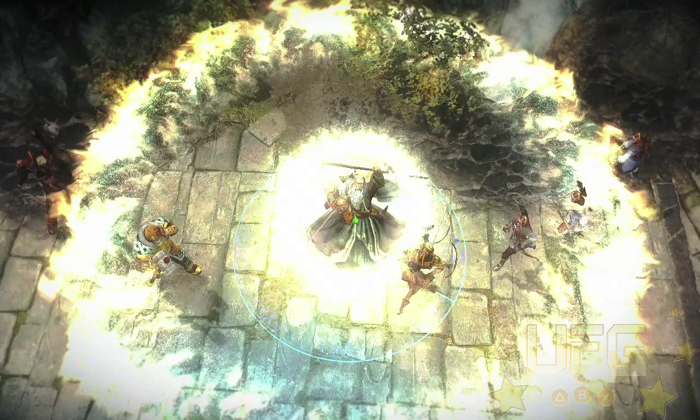Guardians of Middle-earth
Monolith has been stretching their creative muscles these past few years. When it comes to game development, they’ve proven that they can make a good product regardless of the genre. They’ve done first-person survival horror (the Condemned series), an MMO (the promising Matrix Online) and an arcade style FPS (the awesome Gotham City Imposters). With their latest game, Guardians of Middle-earth, they’ve turned their attention to the newer multiplayer online battle arena (MOBA) genre. After spending a decent amount of time in game, I can safely say that the results are…interesting!
And by interesting, I mean that they did a good job. For those that don’t know, MOBA’s involve two teams of five that compete to see who can take down the other’s main structure/tower/base/idol the fastest. Players select a “hero”, or in this case guardian, as their avatar on the field. Each hero has their own abilities and special moves that lend themselves to different roles; for example, a supporting hero would be best at healing others. There are usually three paths or lanes on the map, blocked off by strategically placed environmental elements, where most of the fighting occurs. To help and hinder players, there are towers and minions. Friendly towers will help to guard a lane by firing on any enemy that wonders too close. Periodically spawning minions will march down each lane to attack opposing towers or heroes. Ultimately, eliminating enemy towers will force them to personally defend their main structure, making it difficult for them to win.
Still with me? Good. Even though that’s the basic gameplay in a nut shell, there is much more to it. There are also special neutral enemies placed around the map. Defeating these tough opponents rewards your team with temporary buffs, giving them an edge in battle. There is also the use of items, gear, upgrades, and more. Each hero unit is able to upgrade their current abilities and gain new ones using experience points gained by killing enemies, helping teammates and completing objectives (like taking down a tower). Minions and towers can also be upgraded. When it comes to items and gear, you’ll gain money over time that can be used to purchase them. Healing potions, gems that increases basic attack power, and relics that grant boosts in earned experience are some of the things worth having. If your team is doing well, you’ll get more money quicker allowing your team to be better outfitted.
With all that being said, if you were to just glance at Guardians of Middle-earth, you’d have no problem understanding the appeal; the characters from the Lord of the Rings series are up against one another in a MOBA style game and that concept alone is quite awesome. But what’s interesting is what Monolith has done by placing this on a console as opposed to the PC (where most MOBA’s are played). One thing that must be noted is how hostile this genre is to new players. The amount of strategic thinking it takes to be good (I’m not talking great, just good) makes it tough for people to jump right in and play. On top of that, MOBA communities can be quite brutal to newbies. Not to say that every seasoned MOBA player is a jerk, just that the environment can be a daunting place to trek. When it comes to Xbox Live, there aren’t that many featured games from this genre. Counting this game, Monday Night Combat, and Awesomenauts we have a total of three. Live gamers have some time before becoming elitists who don’t have time to coach newer players!
That’s not the only reason this game is so welcoming to the new; Monolith was smart enough to include a Skirmish match type. Here five players can go up against five AI controlled players. Friends can set up a party in Live and then go take on the AI, allowing them to continue learning the ropes long after the training mode loses its usefulness. Here you can level with friends and learn better strategies, all without having your ear drums filled with obscenities for doing poorly. That said, the AI is no push over. You’ll still need to be smart in your approach. To be successful, you must be aware of what’s going on around you, know when to run and when to fight, and use the right items at the right time.
Additionally, Monolith added in elements from other games that would be more familiar to console gamers. For instance, there is no in-match item buying. All of your items are purchased or unlocked, then applied to a loadout before a match starts. Any character you’ve unlocked can use these loadouts; increasing their stats and possibly the way you play them. They also added challenges; mini-objectives that grant bonus money and experience. Increasing your rank unlocks items, loadout slots, and more. Earning money will allow you to buy better items. Lastly is the absence of the keyboard and mouse. There is so much to talk about from a gameplay perspective that it would be easy to forget about something like the control scheme. Monolith did a great job mapping everything to the 360’s controller; using the analog sticks for movement and aiming works extremely well. Again, this lowers the bar in terms of gaining new players.
Besides the Skirmish, this game also features Battlegrounds, Elite Battlegrounds and a custom match option. Battlegrounds feature 5 vs 5 action with a 20 minute timer. The winner is determined according to the number of points each team earns or by whichever team destroys their opponent’s base. This is awesome; most MOBA games don’t have this option, making every match a possible hour-long affair. Moreover, if matchmaking takes too long, empty player slots are filled with AI bots. Elite Battlegrounds also has 5 vs 5 action, but there is no time limit and bots aren’t allowed. Custom allows any combination of players or AI and allows you to determine if a time limit is used. All of these modes can be played on 3-lane maps or on single lane ones. The larger 3-lane maps lead to longer matches where most of the strategy I talked about before becomes more important. The single lane battles are much shorter, though they are more hectic.
Considering that this game features the ever popular Lord of the Rings series, let’s focus a bit more on the characters. Monolith pulled them from both the books and films to bring us the classic good characters like Gandalf, Legolas, and Beregond as well as the evil ones like Sauron, the Witch-king, and Lugbo. All characters fall under one of five types or roles: Enchanter, Defender, Striker, Tactician or Warrior. When it comes to their roles on the battlefield, they aren’t that different from other MOBA’s but their abilities, for the most part, are still true to their book/film origin. It’s awesome to see Legolas rain down arrows on foes, laying waste to multiple opponents at once. Likewise, smashing a tower as Sauron provides a certain level of satisfaction that is missed when playing as any other unlicensed character from another game. Unfortunately, this does cause problems when it comes to balancing out the roster.
Because this is Lord of the Rings, I figured this would happen with specific characters more so than others. It makes since to make Sauron an extremely powerful character. The issue comes in with characters that wouldn’t normally be in a large scale battle. In order to make these odd choices work, they were given abilities they may not have originally had. Gollum, for instance, shouldn’t be able to take down someone like Gandalf easily. Now, in the spirit of gaming, I understand making it possible for each character to be able to take out all the others. I also understand that some of the weaker story characters where given better abilities to make them worth being added to the game. That said, I think the developer went a little overboard.
Take the Witch-king for example. He is a defender; a character that supports teammates by absorbing damage and controlling the enemy. In the story he is someone to be afraid of. In game, he isn’t menacing at all. His abilities aren’t strong enough to successfully control a group of enemies and he can’t take damage that well. Then there is Wulfrun (another defender) who’s spells can heal and shield allies from attacks. He can also take a beating and keep kicking. All around, Wulfrun is a much better choice than Sauron’s second in command. So much so, that it feels like the king was a wasted addition to the roster. Now to be fair, it can take years before gamers develop good strategies with each character. The different gear you add to a character can also lend to good strategies. That and I could also just suck with a harder to use guardian. That said, on a basic level of which character can do what, some characters start significantly underpowered. The good news here is that there are a lot of characters to choose from (22 in all). I didn’t have a hard time finding characters that clicked for me. And even if that was the case, there are eight more coming by way of DLC!
All and all, Guardians of Middle-earth is a good game. The game looks great as it’s easy to recognize your favorite characters and everything sounds like you’d expect; the sound effects and voice work kept me immersed in Tolkien’s world. The only issue I have, outside of a balanced roster, is the connectivity. There are times when online play is hindered by excessive amounts of lag. That’s of course if you can get into a match. Be prepared to wait for the matchmaking to do its thing. When everything is working as it should, the game excels though. Weighing the pros and cons of a purchase, I’d recommend spending the points. It’s defiantly fun and worth your time!
Gameplay:
8
Guardians of Middle-earth should be well received. Even with the connection issues!
Graphics:
9
Everything looks great!
Sound:
8
Gandalf sounds like he did in the movies. Awesome!
What's New:
7
The changes made to the game in order for it to play well on consoles helps this title stand out.
Replay Value:
9
New characters, item unlocks, and strategic gameplay warrants a constant return to arms!
Final Score:
8.2




